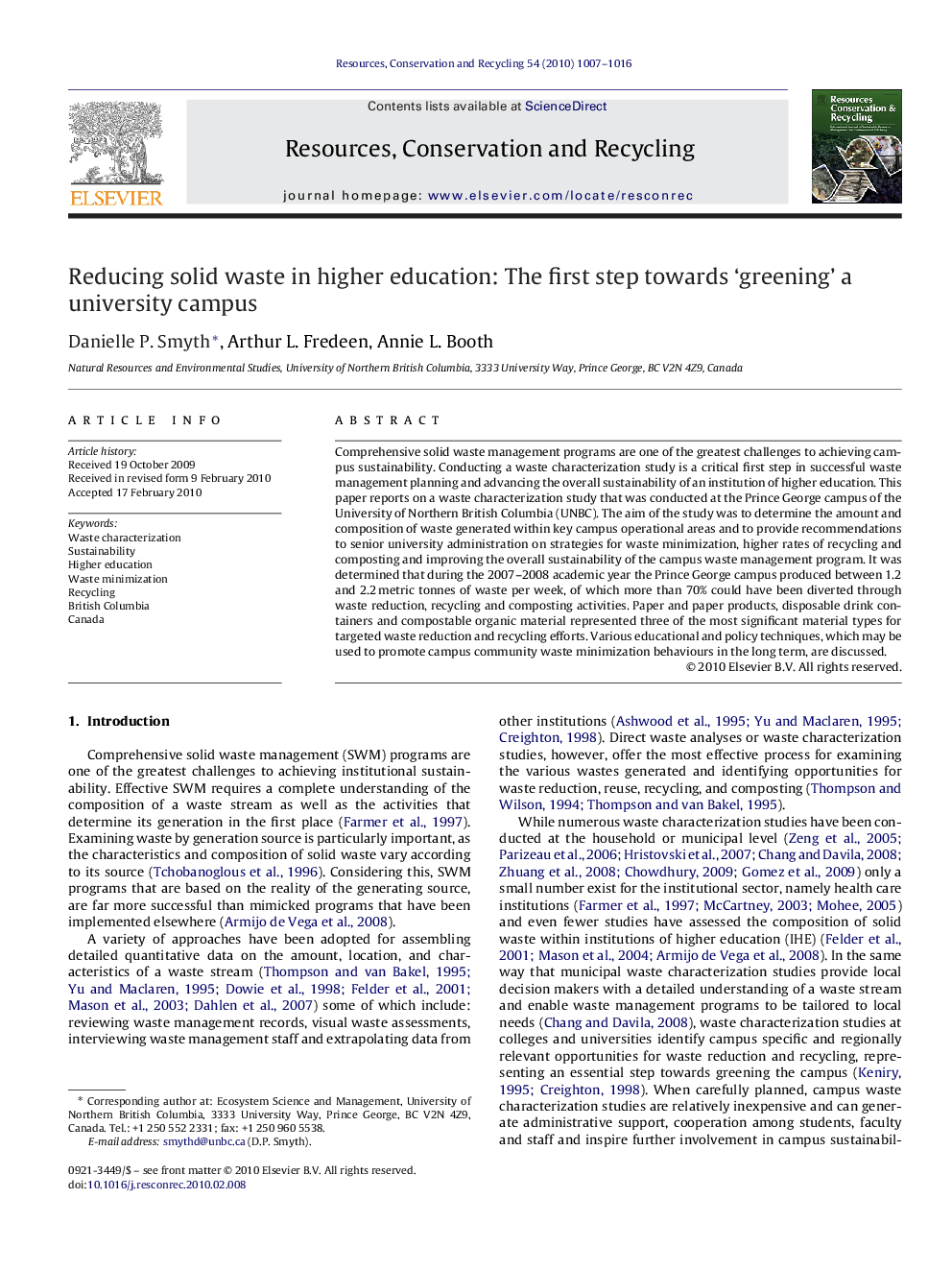| Article ID | Journal | Published Year | Pages | File Type |
|---|---|---|---|---|
| 1063951 | Resources, Conservation and Recycling | 2010 | 10 Pages |
Comprehensive solid waste management programs are one of the greatest challenges to achieving campus sustainability. Conducting a waste characterization study is a critical first step in successful waste management planning and advancing the overall sustainability of an institution of higher education. This paper reports on a waste characterization study that was conducted at the Prince George campus of the University of Northern British Columbia (UNBC). The aim of the study was to determine the amount and composition of waste generated within key campus operational areas and to provide recommendations to senior university administration on strategies for waste minimization, higher rates of recycling and composting and improving the overall sustainability of the campus waste management program. It was determined that during the 2007–2008 academic year the Prince George campus produced between 1.2 and 2.2 metric tonnes of waste per week, of which more than 70% could have been diverted through waste reduction, recycling and composting activities. Paper and paper products, disposable drink containers and compostable organic material represented three of the most significant material types for targeted waste reduction and recycling efforts. Various educational and policy techniques, which may be used to promote campus community waste minimization behaviours in the long term, are discussed.
